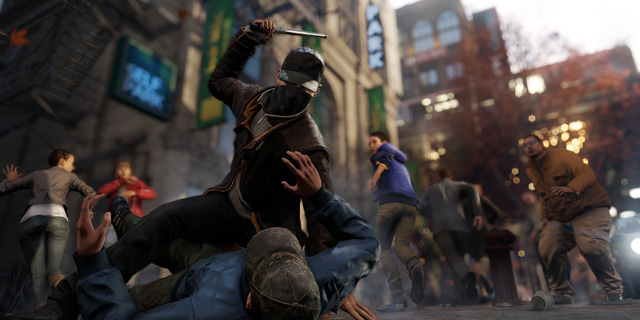
Ubisoft’s new open-world action game, Watch Dogs, has generated a lot of buzz in the two years since its initial reveal. Originally positioned as one of the first (if not the first) big titles for the next generation of game consoles, it has drawn the focus on many, even months after its initial delay. It’s almost impossible to live up to those expectations, yet Ubisoft has tried its best to make it stand out among a sea of similar, well-liked games.
Our hero, or anti-hero, is Aiden Pearce, a hacker vigilante on the hunt for justice a year after the death of his niece. His quest brings him into contact with several colorful characters, all seemingly ripped straight out of a Grand Theft Auto game, and a host of villains poised to stop him from finding out the truth. Aiden is far from a relatable character. Despite his good intentions, he still murders hundreds of people over the course of his journey through a near-future Chicago, thus diluting his potential as a redeemable character. There are some minor twists and cool moments, sure, but you’ll find very little to like about this tale of revenge.
Watch Dogs’ main hook is the hacking, which is a large component of the gameplay (and also not as important as it may seem at first). Anytime you’re walking around the world, you can use your seemingly mystical phone to hack into just about anything: cameras, traffic lights, breaker boxes and anything else you think might help you along the way. This is used in three key ways, some better than others.
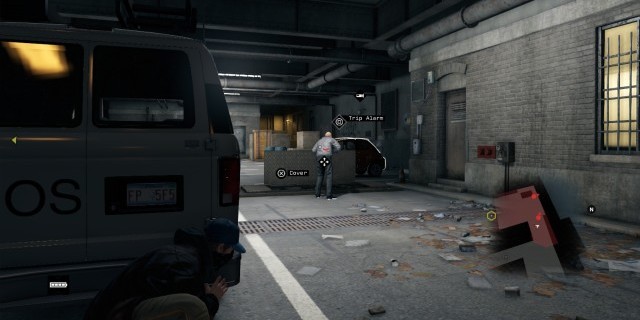
Unnecessary upgrades
As you complete missions and side activities, you earn XP which is used to unlock new abilities. I ended up putting most of my points in hacking because, well, why wouldn’t I? Some of it had its uses, but the upgrades only serve to make you feel good about unlocking something new rather than having a specific, useful purpose and improvement. It’s exemplary of the game’s major problem: none of it matters much in the long run.
The first is stealth. Many times throughout the game you’ll run into areas that are off limits to Aiden, but are necessary to break into. You essentially use your phone to jump from camera to other electronics in the area in order to distract (or take down) guards and proceed. It’s compelling (at first, anyway), but eventually I just opted to shoot my way through these areas in order to get through faster. The stealth is passable, but the hacking doesn’t make up for its lack of inventiveness.
The second aspect is driving. The driving itself is solid, although not as tight as similar open-world games, but it isn’t until you’re being chased when the hacking comes into play. As you are escaping from a group of enemies or, in some cases, cops, your phone is used to take out cars by activating traffic lights, blowing up pipes under the road or raising bridges at the right time in order to stop your pursuers.
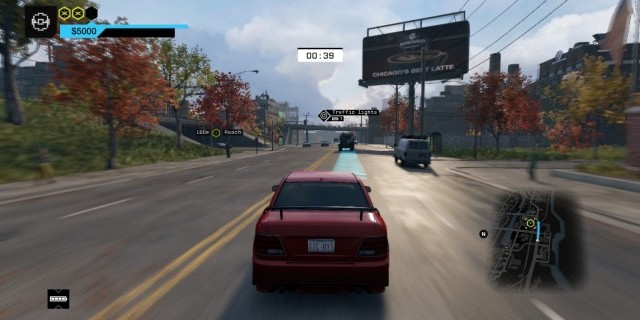
A lackluster Chicago
As you might expect, Watch Dogs is full of side quests to complete. Besides the aforementioned profiling mechanic, you also unlock various quests to stop drug trafficking, break into gang hideouts, and other contracts that are meant to keep you busy long after the story ends. Some of these missions are fun diversions, like the fixer contracts (which remind me of Rockstar’s Smuggler’s Run), but the majority isn’t particularly memorable or enjoyable. You won’t miss much by skipping any of it.
This is probably the best use of the hacking during missions, as it provides you the best use case of the phone and leads to the most strategic car chases I’ve seen in an open-world title. Sure, you can just drive around and hope for the best, but planning your route in order to take out your foes and make a clean getaway is vital. Otherwise, you might find yourself spending a little too much time in these chase sequences.
The third and final use of your phone is most useful for side activities. You can hack the phones of anyone in your immediate area, which is used to gather data on civilians. A lot of this is filler text, but some of it leads to optional objectives in which you stop crimes about to happen. This is another example of Watch Dogs attempting something creative with its open world, but these events are rarely that exciting and always lead to you simply chasing down the criminal before he escapes. The potential is there for something bigger, but it’s never fulfilled here.
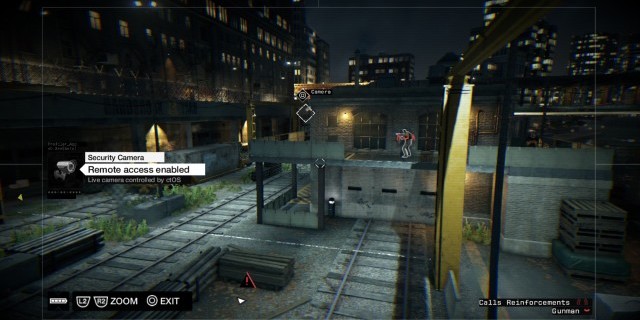
You are what you do?
While completing story missions or side content, you’ll quickly notice Watch Dogs’ reputation system. The more you help people by stopping crimes (or even just completing story objectives), the more the people in the city respect you. Like most things in Watch Dogs, it doesn’t add up to much of anything and unless you go on regular killing sprees, you’ll never have to worry about being viewed by the citizens of Chicago as a criminal.
Surprisingly, Watch Dogs’ greatest strength lies in its approach to online multiplayer. If you’re opted-in, you can randomly be “hacked” by another player, forcing you to track them down and kill them before they can steal your information. This is the base mode and it is introduced brilliantly, allowing you to get used to how it works while throwing you into a match with another player. It takes some getting used to, but it’s an excellent demonstration of Ubisoft’s “seamless” multiplayer world.
The other modes are more traditional, but they blend right into the main game world. The one I enjoyed the most is Decryption. It’s a four-on-four mode in which you need to decrypt information and get away before the other team achieves the goal. It’s nothing groundbreaking, but the way it’s integrated into the same world as the single-player is a push in an exciting direction for multiplayer, even if you still need to go through a menu to get into most of the modes.
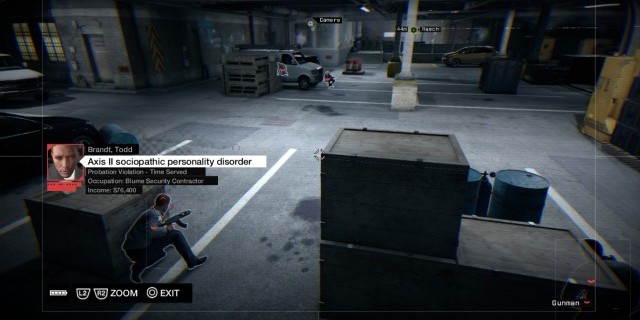
Conceptually brilliant but mechanically safe, Watch Dogs fails to spark the imagination in any meaningful way, making it yet another sandbox game in a crowded market. By attempting to appeal to everyone, Ubisoft has effectively made a game for no one, leaving you with an experience that is unremarkable in almost every way. Sure, there’s fun to be had in virtual Chicago, especially when engaging with the game’s online modes, but you’ll probably spend most of your time wondering what could have been.
Pros: Hacking has some brilliant uses, online play is smartly designed
Cons: Abilities don’t feel essential, most of the experience plays it safe



















